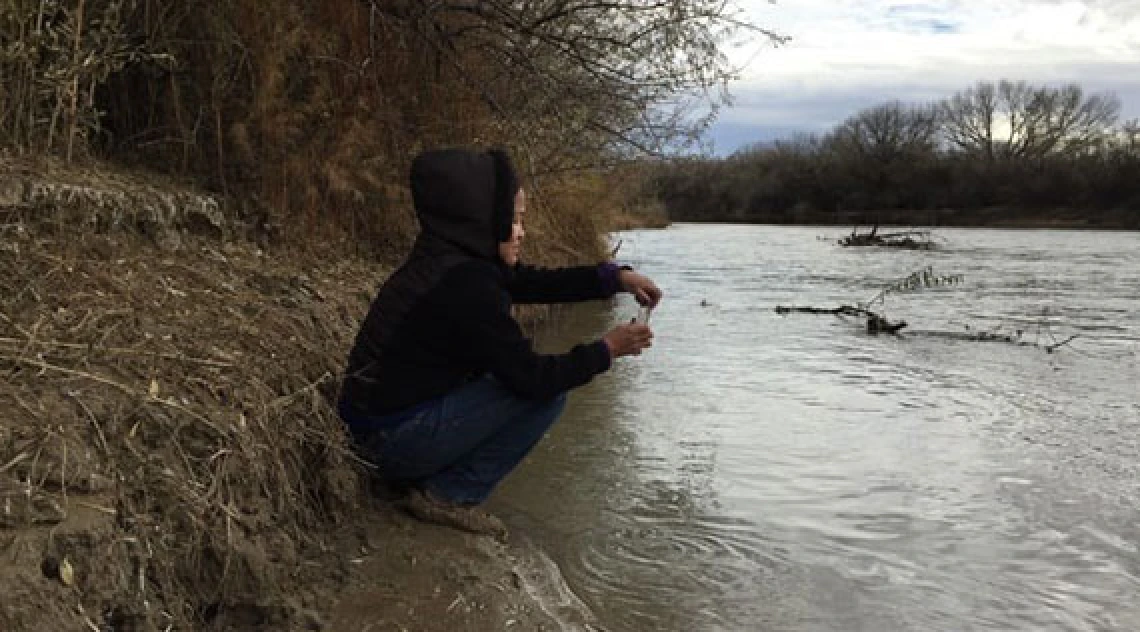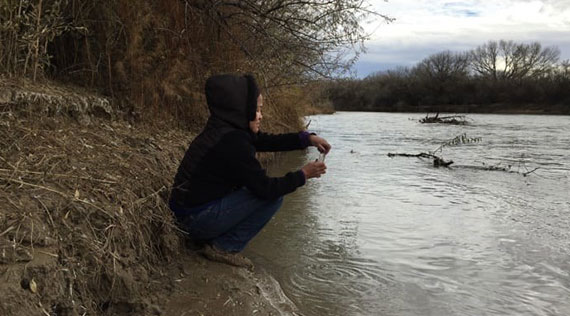Karletta Chief Highlighted in BuzzFeed News Article

 UA SRP Community Engagement Core leader Dr. Karletta Chief and collaborator Dr. Paloma Beamer were featured in a BuzzFeed News story (May 2017) for their work with Navajo farmers following the Gold King Mine Spill in Colorado. Over the last year and a half, UA scientists have been working to help the Navajo understand the impact of the spill by presenting data about contaminant levels to the community members so they feel empowered to decide whether to start using river water again. Led by Chief and Beamer, the team has collected approximately 1,000 environmental samples, including water and soil from the river and irrigation canals, water from wells and conduits, and samples of blood, urine, and drinking water from homes in nearby communities. Visit the BuzzFeed News article to learn more.
UA SRP Community Engagement Core leader Dr. Karletta Chief and collaborator Dr. Paloma Beamer were featured in a BuzzFeed News story (May 2017) for their work with Navajo farmers following the Gold King Mine Spill in Colorado. Over the last year and a half, UA scientists have been working to help the Navajo understand the impact of the spill by presenting data about contaminant levels to the community members so they feel empowered to decide whether to start using river water again. Led by Chief and Beamer, the team has collected approximately 1,000 environmental samples, including water and soil from the river and irrigation canals, water from wells and conduits, and samples of blood, urine, and drinking water from homes in nearby communities. Visit the BuzzFeed News article to learn more.
https://www.buzzfeed.com/nidhisubbaraman/navajo-gold-king-science?utm_term=.rlPGL9K50#.gxmQYKNP9

